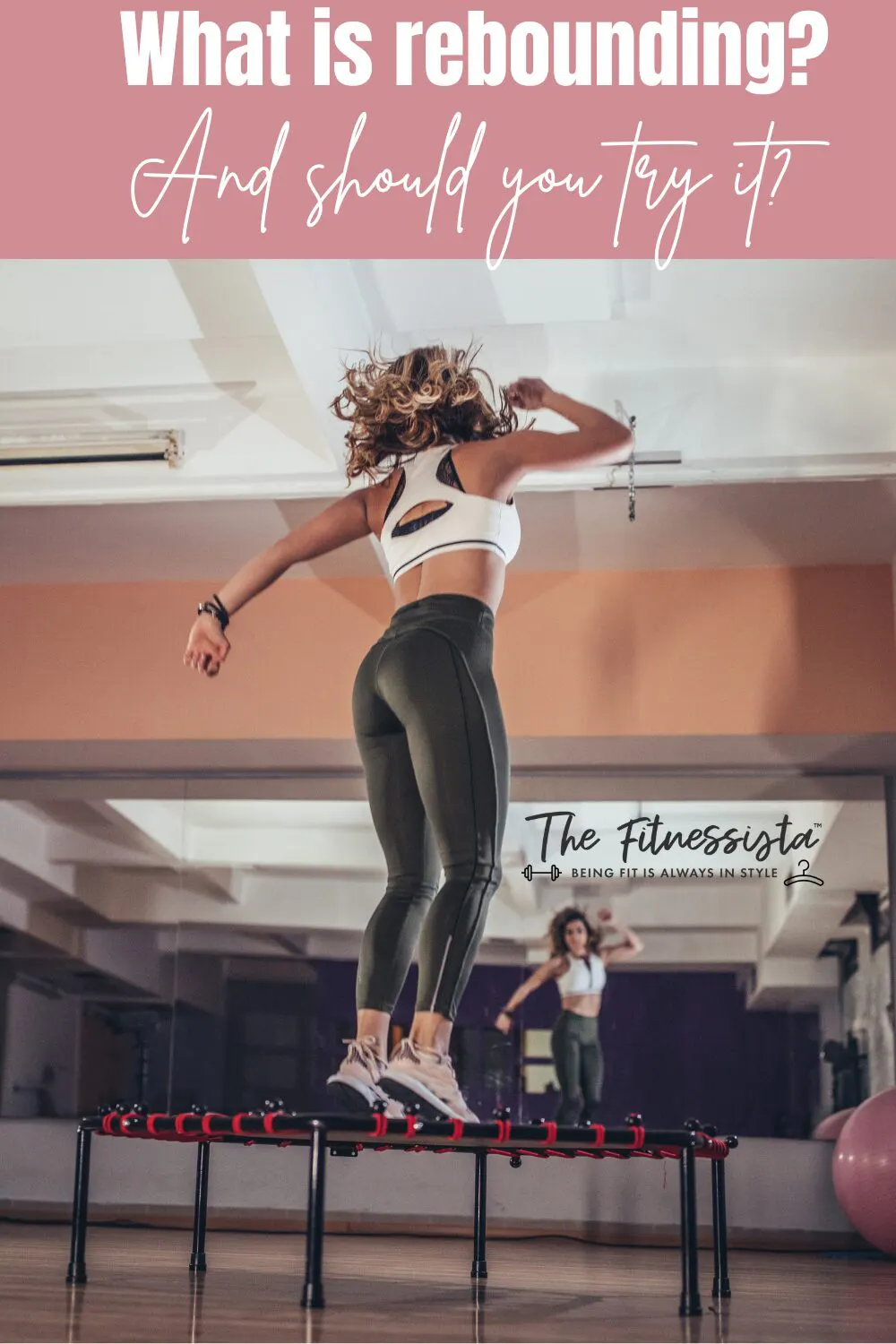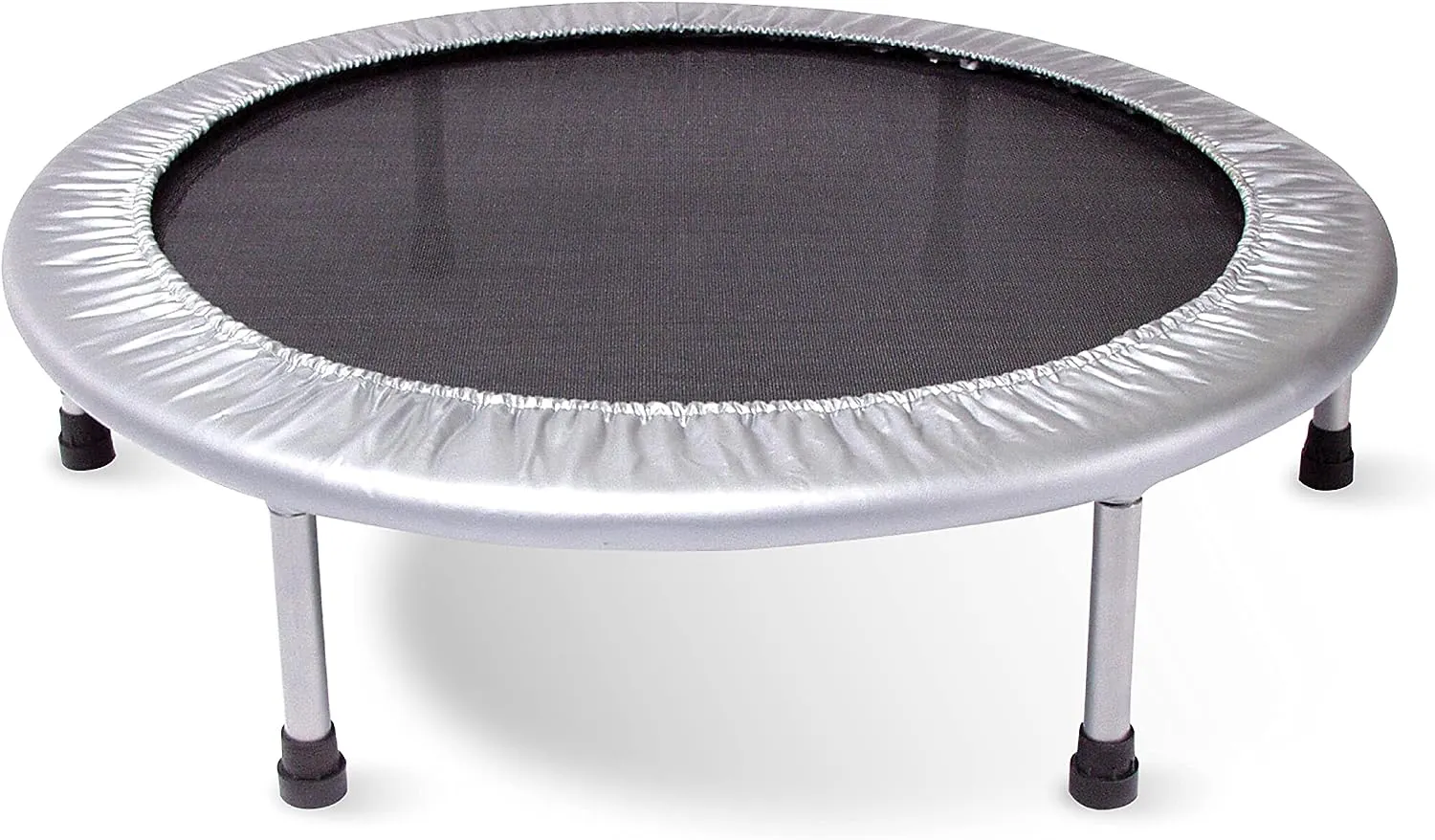Sharing my thoughts on rebounding and if I think it’s worth adding it to your routine.
Hi friends! How are ya? I hope you’re having a lovely morning so far! I have a Spanish lesson today and am getting my nails done this afternoon after a bunch of client calls. I hope you have a wonderful day.
For today’s post, I wanted to talk about something I’ve loved for years, but have just recently implemented into my daily routine: rebounding!
In the world of fitness, rebounding has gained popularity in recent years – bouncing on a mini-trampoline. But is rebounding just a trendy fad, or does it offer real benefits for your health and fitness?
Let’s chat about what rebounding is all about, its pros and cons, and whether you should consider adding it to your routine.

What is rebounding and should you add it to your routine?
What is Rebounding?
Rebounding involves bouncing on a mini-trampoline, often to music or following a structured workout routine. It’s a low-impact form of exercise that can be adapted to suit individuals of all fitness levels.
Pros of Rebounding:
Low-Impact: Rebounding is gentle on the joints, making it suitable for people with joint pain or mobility issues. When you bounce, you can also keep your feet on the rebounder at all times and will still get benefits from the motion.
Cardiovascular Fitness: Bouncing on a rebounder can provide an effective cardiovascular workout, helping to strengthen the heart and improve overall fitness. It can definitely increase your heart rate!
Lymphatic System Support: Rebounding stimulates the lymphatic system, which aids in detoxification and immune function.
Improved Balance and Coordination: The act of bouncing requires coordination and balance, which can be beneficial for overall stability. Proprioception – knowing where our body is in space – is an important skill to maintain as we age to help prevent falls and balance issues.
Stress Reduction: Rebounding can be a fun and enjoyable way to relieve stress and improve mood, thanks to the release of endorphins during exercise. Bouncing is super fun!
Muscle strengthening: Rebounding engages multiple muscle groups, some of which you might not often work (like calves).
Increased Bone Density: Rebounding is a weight-bearing exercise, which can help to improve bone density and reduce the risk of osteoporosis over time.


Cons of Rebounding:
Risk of Injury: While rebounding is low-impact, there is still a risk of injury, particularly if proper form is not maintained or if the trampoline is not stable.
Space and Equipment Requirements: Rebounding requires a mini-trampoline and sufficient space to use it, which may not be feasible for everyone.
Limited Variety: Some people may find rebounding to be repetitive or less engaging compared to other forms of exercise.
Pelvic floor concerns: The bouncing may cause pressure on your pelvic floor, especially if you suffer from organ prolape or bladder concerns. If this happens to you, seek out the help of a pelvic floor physical therapist. Your pelvic floor may be weak, or it may also be too tight, which inhibits full range of motion and decreases function. So often I hear moms joke about how they can’t jump on a trampoline because they’ll pee their pants. It doesn’t have to be this way, and you can absolutely heal! A pelvic floor PT can change your life, I promise.
Should You Add Rebounding to Your Routine?
Whether or not you should incorporate rebounding into your fitness routine depends on your individual preferences, goals, and physical condition. If you’re looking for a fun and effective way to improve cardiovascular fitness, balance, and lymphatic system function, rebounding could be worth exploring. However, it’s essential to consider the potential risks and limitations, especially if you have any pre-existing health conditions or concerns. Always talk with your doctor before making any fitness or nutrition changes.
My favorite low-cost rebounder is here!
You can also download a free list of my favorite wellness resources here.
xoxo
Gina
